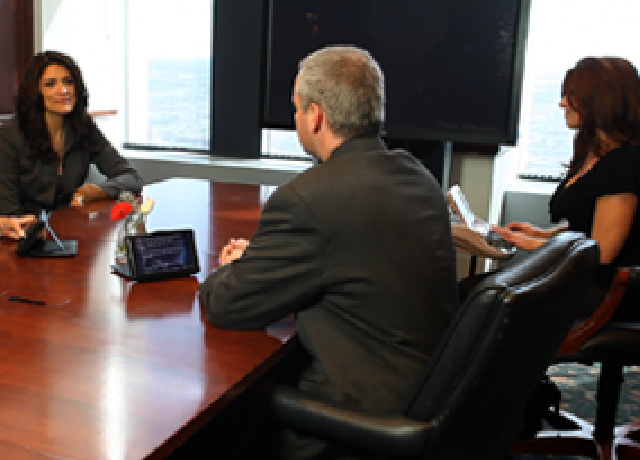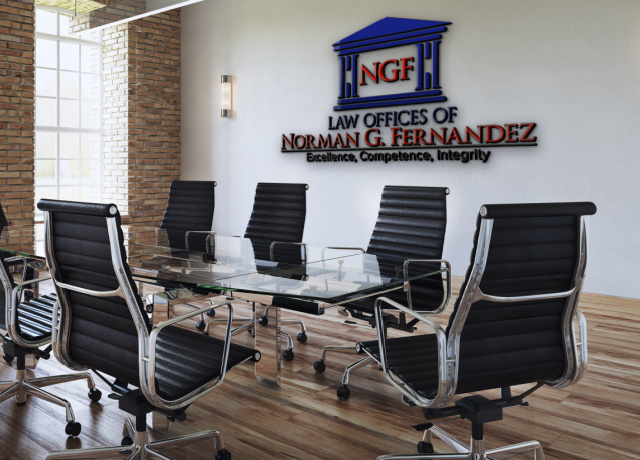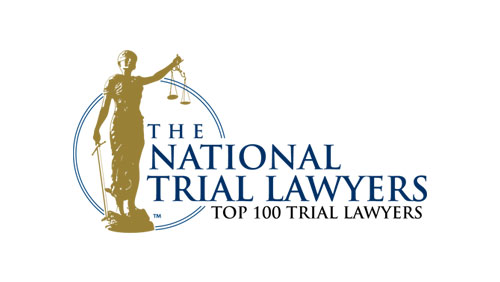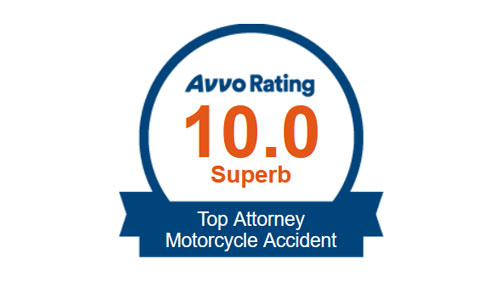
Law Offices of Norman Gregory Fernandez & Associates: Deposition Preparation for Clients
Here is a Deposition Preparation guide for clients of our law firm who are about to have their deposition taken. Study it prior to your deposition. If you have any questions, call us now at 800-816-1529.

- If you have a Personal Injury case in the state of California, you should immediately stop reading and call our law firm at (800) 816-1529 Ext. 1 for a free telephone consultation. We will let you know over the phone what we think about your case.
- If we believe we can be of assistance to you and you decide to retain our services, we will send you the necessary documents to retain our law firm by email.
- If you do not have health insurance or a primary care physician, we can immediately refer you to a qualified doctor in your area for medical care.
- Yes, all of this can be accomplished with a single phone call to our law firm. (Yes, even if you do not have medical insurance.) We make every effort to simplify the process for you.
Law Offices of Norman Gregory Fernandez & Associates: Deposition Preparation for Clients
You are scheduled to be deposed in this case, so we wanted to provide you with some general information regarding your role as a witness at the deposition.
PURPOSE OF A DEPOSITION
In order to determine the facts of the case prior to trial, the purpose of the deposition is to allow a party to take your testimony under penalty of perjury.
Although a deposition is an out-of-court, informal proceeding, it has the same force and effect as if you were testifying in a court of law.
Due to the fact that a deposition is taken under oath (under penalty of perjury) and can be used in court, it is crucial that a witness be certain of their answers, not volunteer information, and not speculate on matters for which they have no knowledge.
Due to the possibility that your deposition testimony will be presented to a jury or judge at trial, it is also crucial that you do not act hostilely towards the questioner or engage in an argument with the questioner, as doing so will make you look bad.
A statement that appears harmless when it is spoken can be devastating when it is read during the trial. A judge or jury is unable to evaluate the demeanor of the witness during the deposition. Maintain professionalism. Do not get angry with the person who is asking you questions; they are simply doing their job.
Your deposition is being taken down by a court reporter (a court reporter is a person who types everything said during a deposition), who cannot type two people speaking at the same time. Therefore, it is crucial that you wait until the questioner has completed their question before responding.
This eliminates the possibility of providing an incorrect response to a question because you misunderstood it by interrupting the questioner. For example, if the questioner asks, “Are you dead or are you alive?” and you answer “Yes” without waiting for the second part of the question, it will appear that you answered “dead” when the complete question and answer are typed.
Additionally, it is essential to wait a few seconds after the question has been posed so that we may object if necessary. If you respond too quickly, we are unable to raise an objection.
Another reason the opposing party will take your deposition is to freeze your story. In the event that your trial testimony differs in any way from your deposition testimony, the attorney for the opposing party could use the deposition testimony to contradict and embarrass you by demonstrating that you changed your story. Changing your story gives the impression that you are not telling the truth. This is what attorneys refer to as impeachment. It is very effective in front of a judge or jury, as juries are generally skeptical of witnesses who change their stories.
To assist you in preparing for your deposition, you must recognize the significant distinction between a deposition and a trial.
This deposition is informal and unidirectional. It will appear to benefit the opposing party. The reason is that the attorney for the opposing party is asking all the questions.
As the deponent, you are generally required to respond to all questions. Some of his questions will not be allowed in court during the trial, but they are permitted during the deposition.
The opposing attorney may engage in a fishing expedition by posing questions that are irrelevant to the case. The opposing counsel has broad discretion in posing such questions. This is to allow both parties adequate time for discovery and pre-trial preparation. The opposing attorney is permitted to conduct a fishing expedition in search of admissible evidence leads.
No judge will be present at our deposition to rule on any objections. I will play a supporting role. You absolutely must remember this. I will pay close attention to every question you are asked. If any are inappropriate, I will object. Nevertheless, I do not anticipate a significant number of objections. It’s possible there are none. I do not want my silence to be misinterpreted as a failure to protect your interests. Sometimes, the opposing counsel may go overboard, necessitating numerous objections from me. We will both observe the outcome.
In our many years of experience, we have never had to terminate a deposition in order to file a protective order motion with the court.
Next, we will provide you with information that will help you understand what the attorney for the opposing party is attempting to accomplish by asking you questions. As stated previously, they have multiple reasons for taking this deposition.
The structure of his questions may reveal their primary interest. When you are being questioned primarily for the purpose of information gathering, the questions will be broad and the subject matter expansive. They are attempting to encourage you to provide rambling responses that may reveal new information. If they are attempting to elicit admissible evidence from you, things that they can read directly to the jury at trial, their questions will be more targeted. They are attempting to “freeze” your testimony when they do so.
They will repeatedly ask you “was there anything else?” and “is that all you can recall?” They are compelling you to take a position that you cannot change or correct during the trial without running the risk of impeachment.
They are likely to ask you numerous leading questions. A leading question suggests the answer to you in the question itself. It is merely a question with a factual statement that requests agreement or disagreement.
They will ask you questions to which they require a “yes” or “no” response.
They will attempt to put words in your mouth during this procedure.
If any portion of their leading question is incorrect, do not respond with “yes” or “no”; instead, provide the response you intend to provide. Do not feel compelled to respond with a yes or no when the answer is neither yes nor no.
They will likely ask you why, restate the statement with the correct information you just provided, and then ask you again whether you agree or disagree. Remember that they are attempting to stifle all of your testimony. Verify its accuracy before agreeing with their statement.
They will always attempt to obtain responsive responses from you. In other words, he will require a definitive “Yes” or “No.” They will likely ask the question in a variety of ways to elicit a response. They will seek precision to the extent that you can provide it. They will want to know every detail you can recall. Additionally, they will be on the lookout for previous contradictory statements from you. Nonetheless, if they discover one, they will most likely not mention it during the deposition and instead save it for trial. It is essential that you maintain consistency throughout your entire narrative.
It is likely that the opposing attorney’s first step in the deposition will be to create a record that he can use during the trial to demonstrate that you understood the full nature and potential uses of the deposition.
They are attempting to protect themselves in the event that you insist at trial that a contradictory statement resulted from your inability to comprehend what was occurring during the deposition.
Due to the fact that your deposition testimony is subject to the same perjury penalties as trial testimony, they will likely proceed with only incidental questions. Typically, they will ask a large number of demographic questions, such as name, address, age, family history, place of origin, high school attended, names of spouse and other family members, etc. These questions are designed to get you in the habit of answering and thinking. However, DO NOT relax your vigilance! They will likely be presented in chronological order, from oldest to newest.
We expect them to provide extensive information regarding your education, training, and prior employment. Regarding the questions they will ask you about the specific incident that gave rise to the lawsuit, they will be meticulous, frequently redundant, and exhaustive.
Not every question will appear relevant, not every question will be relevant, and not every one of these questions will be relevant. Attorneys frequently think ahead when posing their questions and can get lost in the weeds with rambling, seemingly incoherent queries.
If necessary, we will object to the form of the question; however, do not hesitate to inform opposing counsel that you do not understand the question and request that they rephrase it.
Below is a list of tips for deposition witnesses such as yourself, which may provide you with useful general information.
A jury can be easily swayed by their emotional reactions to a witness; therefore, it is in your best interest for the jury who hears your testimony to find you credible, empathetic, and relatable.
Keep in mind that “pauses” will not appear on a transcript. Therefore, think carefully before responding. If a question is unclear or you do not comprehend it, request a repetition. If a question is actually a compound question (a compound question is two questions in one), we will object to its form; however, if we do not, be sure to ask him to rephrase the question into two separate questions.
BASIC RULES FOR DEPOSITION WITNESSES
Be truthful.
Always be truthful. The truth is significantly easier to recall than a lie. In addition, you can be charged with perjury if the court determines that you lied intentionally.
Undoubtedly, you will encounter questions that we have not covered today. When this occurs, you should not be upset. Focus on the question and, if possible, provide an answer. You may be asked if we met in advance of the deposition to prepare. Never respond to any questions pertaining to your attorney or our conversations. All of our communications with you are protected by attorney-client privilege. Do not volunteer any communication-related information. All attorneys should know better than to inquire about our conversations, but if they do, I’ll instruct you not to respond.
Listen to the question
Focus on each and every word. Wait until the last word of the question has been spoken before beginning your response, and pause briefly to allow us time to object if necessary. If you pay close attention to everyday conversation, you will notice that we frequently cut each other off – not to be rude, but to keep the conversation moving. Listening is hard work. If you listen attentively, you will not only provide better responses, but you will also give us time to object.
Be certain to hear the question
If the attorney lowers his voice or someone coughs and you miss a few words of the question, state that you did not hear it and request a repetition. Even if you are almost certain that you know the missing word, you should still perform this step.
Ensure that you comprehend the question
Occasionally, the question is so lengthy or convoluted that you do not know what you are being asked, other than that it pertains to subject “A.”
You may be tempted to respond by discussing subject “A” in the hopes that the attorney will then move on to another topic. Avoid doing that. Simply state that you do not comprehend. If you do not comprehend, do not assist the opposing attorney in posing the question. Do not say, “If you mean this, my response would be this; if you mean that, my response would be this.” You may give the opposing attorney ideas they have never had before. Every word in your response could generate a new inquiry. Simply state that you do not comprehend.
Respond to the question
When possible, answer a question with “yes” or “no.” If the answer is neither “yes” nor “no,” give the response you prefer. Ordinarily common sense Do not volunteer information that is not requested; only respond to the questions posed. You are under no obligation to provide information that is not requested. If you do not know the answer to a question, simply state that you do not know it. If you cannot recall, state that you cannot recall. If you do not comprehend the question, state that you do not comprehend it. Avoid guessing the answer to a question above all else.
Generally, your response should be concise and direct. Keep in mind that every word of your response could be the seed of a new question.
You must respond to my question with audible English responses, such as “Yes” or “No”, which are standard English words, but “Uh-huh” or “Uh-unh” or nodding or shaking your head are not.
The court reporter cannot record hand gestures, head nodding, or non-words, which may misinterpret your response.
Do not provide information voluntarily. Be direct and precise in your response. Once a statement has been made, it cannot be undone. If you do not know or cannot recall, state so. You do not get extra points by guessing.
If you are confident in your answer but not absolutely certain, say so. It is acceptable to respond to a question with “I don’t know the answer” or “I don’t remember the details because it happened so long ago.” It is completely normal to overlook minor details.
Simply do not speculate or make something up.
Be wary of making absolute statements such as “Nothing else occurred” unless you are 100 percent certain that they are accurate. If it is a question about time or distance and you are unsure of the answer, say so.
If they ask you to estimate, preface your response with “I don’t know the exact time, but it was between 8:30 and 9:00.” You may only respond to a question with information from your own personal knowledge, such as what you personally observed or heard.
What you learned from taking high school and college exams applies here. Respond to the question posed. If the question begins with “Who,” your response should be a name; if it begins with “Where,” a location; if it begins with “When,” a date or time; and so on.
If you do not know or cannot recall, say so and then remain silent.
Do not volunteer a document reference, such as “I’m not sure; I’d have to check my desk calendar.” You may be asked the same question in a different way at a later point in the deposition. Be consistent in your responses. You do not receive bonus points for providing answers that are perfectly clear and exhaustive. Typically, ambiguity in your response is a problem for the opposing party, not you. Occasionally, after you give your response, there will be a pause.
The other attorney may be considering how to phrase his next inquiry. Sometimes, silences make the witness uneasy. There may be a temptation to fill the silence with words or information. Avoid doing that. Maintain silence and await the next question. If a question irritates or angers you, resist the urge to argue with the opposing attorney. If you engage a lawyer in an argument, you will lose. It is not a personal attack, but the attorney may attempt to provoke you into losing your temper. Remain calm and collected. Just provide whatever information you have that is relevant to the question, and then remain silent. Request a break if you feel yourself losing control or your temper.
If asked a question that requires a lengthy response, provide one.
Use your common sense. If you are uncertain, keep your response brief or ask the opposing attorney to break the question into subparts.
Do not make speeches. Remember that every word you utter is an opportunity for opposing counsel to attack you.
In your interactions with the opposing attorney, you should be courteous and open, but mentally vigilant at all times. Even if you say something “off the record,” the opposing attorney can ask you about it when you are back on the record.
I may object to certain questions. When you hear my voice, QUIET DOWN! Try not to let my objection distract you. Consider the objection. It may reveal a hidden trap within the question. I may be interrupting the rhythm of the opposing counsel. The objection also serves as a reminder to maintain focus. I may also instruct you not to respond to the question. If I do, obey my directive.
You may be asked the same question multiple times. If your initial response was accurate, maintain it. The fact that the opposing attorney keeps bringing up the question does not indicate that your response is incorrect.
You must provide the truth as you know it. If you provided the correct information the first time, stand by your answer. Obviously, the opposing attorney is an experienced and skilled interrogator, and through his questions he may attempt to cast doubt on even the most well-known facts.
Consider this example, which is unrelated to any case. Suppose you are shown a coffee cup and asked to identify it. You mention a coffee mug. They then pause, look at the cup, and allow you to wriggle. Then, after making you wonder what they know that you do not, they lean in and ask, “Now, Mr. Witness, is it your testimony under oath here today that this is a coffee cup? “Do you seriously intend to say that?” There is a natural inclination to retreat and state, “Well, I thought it was a coffee cup.” This minor modification to your testimony may be crucial.
Suppose a witness initially states that he had the green light and then states that he believed he had the light. That would be a catastrophic alteration. Therefore, if your answer was accurate, state, “Yes, it is a coffee cup.” What then does the other attorney do? As soon as he observes that you cannot be swayed, he will switch to a different topic.
Obviously, if you discover that your previous response was incorrect or insufficient, you should revise or add to it. Obviously, you should not assert that a previous answer is true if you later discover that it is false. You will be a reliable witness if you adhere to these recommendations and refrain from responding in a hurry.
Tips to remember quickly
Admit the truth. Never deviate from this policy. You can be honest and helpfully communicate the truth. You can be honest and still say something hurtful. Consider your responses to the lawsuit’s issues carefully. Prepare beforehand. You are sworn to tell the truth as a witness, and you must do so. No one, including your lawyer, is advising you otherwise.
Resist the urge to be helpful, to volunteer information, or to teach. Remember that this is neither the time nor the place to make your case. Simply respond to the question asked! Then, pause and await the next question. The most common error is providing unnecessary information. Do not! Simply respond to the question and then stop!
Remember that the opposing attorney will scrutinize your behavior and personality. Speak slowly and clearly.
Dress appropriately and obtain sufficient rest. A good night’s sleep is vital. Have your attorney answer your questions about the deposition before the hearing begins and in private.
Be confident but not arrogant. Ensure that your attorney has answered any questions you have about the deposition procedure prior to its commencement.
Be precise. If you cannot provide a reasonably precise response, simply admit that you do not know. Do not guess. It is acceptable to respond “I don’t know” to a question.
Be courteous yet firm. Relax. Do not feel obligated to speak simply because there is an extended period of silence.
Do not attempt to convince the opposing attorney that his client is wrong, and you are right. He only desires to win his case. The more information you provide him, the more informed he becomes.
Do not anticipate the questions. Do not interrupt the question or alter the question in order to eliminate its flaws.
Listen to the question, not how it is asked. The opposing attorney may attempt to intentionally provoke you as a strategy. Using a soft voice and a soothing demeanor, he may conceal a particularly unpleasant or devious question.
Listen to any objections raised by your attorney, but understand that he or she cannot use objections to “coach” you on how to respond.
Be sure you understand the question. Do not respond if the question purports to summarize your opinions or previous testimony but is even slightly inaccurate. If you do not understand the question, do not respond. Inform him that you do not comprehend the question. Declare that the question’s summary of your testimony is inaccurate. The attorney may ask you misleading or “loaded” questions. You must be vigilant for false statements in the questions. Focus on questions that begin with “don’t you agree?” or “isn’t it true?”
Take time to consider the question and your response. Do not fix his question. If the question is poorly phrased, do not ask, “Are you asking me this?” before correcting it. If the question is “broken,” do not attempt to repair it.
Always read a given document in its entirety before responding. Continue to refer to it when answering any document-related questions. You have the right to a copy when responding. Do not respond to a question about a document unless you have the document in its entirety in front of you.
Complete your responses despite the attorney’s interruptions.
Do not promise or offer to create drawings, perform calculations, collect documents, or conduct research. If requested, inform the opposing attorney that you wish to take a break and discuss this matter off the record with your attorney.
Correct your previous answers if you determine they were incorrect or inaccurate.
Never lose your temper even if provoked. This is likely a “test.” Avoid lashing out.
Do not falsely assume facts. If it’s not true, insist that it’s not true.
Do not play attorney.
Do not argue. Simply maintain your position. If you are repeatedly asked essentially the same question, provide the same response each time. Typically, this is an attempt to get you to change a response that the attorney does not like. Instead, if you are asked the exact same question, you just answered, you must respond again. Just say: “same question, same answer.” When he repeats the same question, give him the same response.
Testify based on your own experience.
Never guess, but estimates are acceptable. “I don’t know” is the correct response if you do not know the answer. Do not use hedging phrases such as “it’s just my opinion” or “I’m not sure” frequently. The excessive use of euphemisms creates the impression that you do not know what you are talking about.
There may be occasions in which you cannot recall an answer. Do not be afraid to admit that you cannot recall the answer right now.
So, the court reporter can accurately record your response, speak clearly, and avoid non-verbal responses (such as head nods).
If one of the attorneys raises an objection, pause, and wait until all attorneys have spoken. Do not let their arguments with each other distract you from what they have to say. Be aware that your attorney’s authority to instruct you not to answer a question is extremely limited.
Do not hesitate to request a break if you need one, or to consult your attorney for legal advice. Never inform the opposing attorney that you wish to speak with your attorney. Any comments you made during the break that were overheard by the opposing counsel will likely result in you being questioned about them following the break. Tell him no if he asks you after the break if your attorney instructed you on how to answer the question. Do not go without a break for too long. Attempt to take a brief stroll during the break. Splash yourself with water in the restroom.
Do not believe that making concessions to the attorney questioning you will end or shorten the ordeal of the deposition. This will lengthen the deposition. In the mistaken belief that this will end the questioning, he will observe your willingness to agree to “anything.”
Bring no notes or other magrandals to the deposition without your attorney’s knowledge and approval. Show your attorney the items you have brought when no one else is present. Do it prior to the start of the deposition.
You are entitled to a complete copy of any document, not a partial copy. You may take as much time as necessary to study a surprise document before answering any questions.
Additional Tips to Keep in Mind for the Depositions
The primary objective of a Witness is to Tell the Truth, but do not volunteer information.
If you do not know the answer to a question, you should state so.
If you do not understand the question, state that you do not.
Think before you respond.
Estimate dates, times, distances, amounts, etc. if you do not know them precisely, and inform the questioner that you are estimating.
Do not ask for assistance when answering a question.
Only testify based on your personal knowledge.
Do not joke.
Do not attempt to outguess the lawyer.
Do not argue or lose your temper with the attorney.
Do not assume.
If your attorney objects, remain silent, listen to the objection, and only respond if instructed to do so.
Never discuss your conversations with your attorney, the information you’ve given your attorney, or the information your attorney has given you, etc.
Do not let your guard down; the opposing attorney is your legal adversary.
Do not refer to notes or documents before presenting them to your attorney.
Speak clearly and slowly.
Do not respond to a question before the opposing counsel has completed asking it.
Simply respond to the question. In response to accusations of wrongdoing, you should resist the urge to explain or justify your actions.
Be sure you hear the question. If the attorney loses his voice or there is a disturbance and you miss a few words, repeat the question.
Before providing an answer, you must first comprehend the question. You cannot give a truthful and accurate response if you do not comprehend the question. If you do not comprehend, ask the attorney to repeat himself. Be on the lookout for questions that have a double meaning or that assume you have testified to a fact when you have not. Ensure that the question is precise. If the opposing attorney asks, “What about the house?” request an explanation. If you are uncertain of the meaning of a word, do not feel ashamed to admit it. The attorney may be showing off. Force him to explain. Do not assist the questioner by merely stating that you do not comprehend if you do not understand.
Do not be concerned about silence. The other attorney may be considering the next question. Do not succumb to the temptation to fill the void with words. Keep quiet and wait.
Repetitious questions. You may be asked the same question multiple times. If your initial response was accurate, maintain it. Even if you are faced with obstacles, persist. Do not let the opposing attorney shake you.
Be wary of questions that combine two questions into one. Have each question repeated individually.
Never attempt to justify or explain your answer. You are expected to present the facts as you understand them. You are not required to apologize or attempt to justify these facts; doing so would give the impression that you doubt the accuracy or veracity of your own testimony.
You are only required to provide information that is readily available. If you do not know a particular piece of information, do not turn to your attorney or another witness, if one is present, and ask for it. Unless your attorney advises you to, do not promise to obtain information that you do not already possess. If you know the answer to a question at the time it is asked, you must respond. Do not agree to look something up in the future and then supplement your answer unless your legal counsel advises you to do so.
Do not reach into your pocket for your social security card or other documents unless your attorney specifically requests it. The purpose of a discovery deposition is to elicit facts that you know and have in mind, not to obtain documents. If the opposing party wishes to obtain documents from you, they can do so through other legal means. Do not request that your attorney produce anything that is currently in his file, as the same rule generally applies to these items as it does to any items that may be in your pocket.
After the deposition has concluded, do not converse with opposing parties or their attorneys. Remember that the opposing attorney is your legal adversary. Do not allow his affable demeanor to cause you to relax and become chatty.
This is not a marathon; if you need a break for any reason, please request one.
Best wishes for your deposition. Attorney Norman Gregory Fernandez.

Get Help Now
The Law offices of Norman Gregory Fernandez & Associates has over 25 years experience handling personal injury cases all over the state of California. We have handled thousands of cases and obtained millions of dollars in settlements and judgments for our clients. Call now for a no pressure free consultation with an actual attorney. 800-816-1529 extension 1.
You can download our California Accident App for iOS and Android by clicking here and visiting our California Accident App page. This application will allow you to record and transmit all information related to your California Injury accident case to our office.
Contact Us Quickly
For a free Consultation
Or Call our 24 hour helpline NOW!
800-816-1529
 No Recovery – No Fee Guaranteed
No Recovery – No Fee Guaranteed
You will not pay any fees unless we recover for you on your California Personal Injury case.

Virtual Case Signup and Processing
We can sign you up in minutes from your smartphone, laptop, desktop, or tablet anywhere in the world. No more wasting time, money, gas, and expenses traveling to our offices to sign up. We will process your case virtually through email, phone, video, and our online portal using modern technology. 98% of cases are settled without you ever having to go to court.
 Get Medical Treatment even if you do not have Medical Insurance
Get Medical Treatment even if you do not have Medical Insurance
In most cases we can help you get medical treatment for your California Personal Injury case even if you do not have medical insurance. Call us now for information at 800-816-1529.
 Get our AI California Accident App
Get our AI California Accident App
Get any legal question answered by artificial intelligence with our California Accident App on your Apple or Android device. Click Here to learn more.






